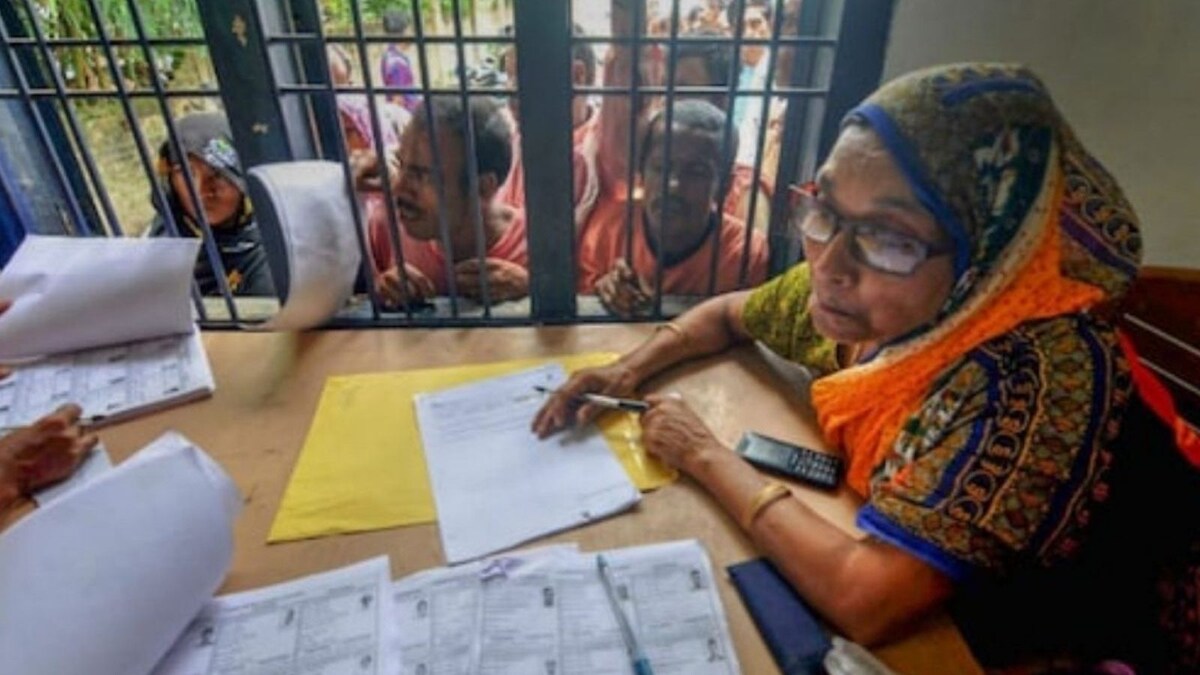The Role Of Mental Health Literacy Education In Reducing Stigma

Table of Contents
Understanding Mental Health Literacy and its Components
Mental health literacy refers to the knowledge and understanding of mental health conditions, their causes, and available treatments. It empowers individuals to recognize symptoms, seek help, and support those affected. Key components of mental health literacy include:
-
Recognizing symptoms of common mental health conditions: This involves being able to identify the signs and symptoms of conditions like depression, anxiety, bipolar disorder, and schizophrenia. Early recognition is crucial for timely intervention and improved outcomes. For instance, understanding that persistent sadness and loss of interest are potential symptoms of depression can lead to early help-seeking.
-
Understanding the causes and risk factors of mental illness: Knowledge of biological, psychological, and social factors contributing to mental illness helps dispel myths and foster empathy. Recognizing that mental illness is not a personal failing but often a complex interplay of factors reduces blame and judgment.
-
Knowing how to access appropriate help and support: This includes familiarity with mental health services, support groups, and self-help resources. Knowing where to find professional help, whether it's a therapist, psychiatrist, or crisis hotline, is vital for effective management of mental health conditions. Knowing about helplines and online resources can also make a crucial difference in moments of crisis.
-
Challenging misconceptions and stigma: This involves actively confronting negative stereotypes and discriminatory attitudes surrounding mental illness. Learning about the realities of mental health and sharing accurate information can significantly reduce stigma. For example, learning to differentiate between factual information and harmful stereotypes is crucial for effective stigma reduction.
The Impact of Stigma on Individuals and Society
The consequences of mental health stigma are devastating. It leads to:
-
Delayed help-seeking behavior: Fear of judgment and discrimination prevents many from seeking professional help, delaying treatment and worsening outcomes. A study by the World Health Organization showed a strong correlation between stigma and delayed treatment.
-
Increased feelings of shame and isolation: Stigma reinforces feelings of shame and guilt, leading to social isolation and hindering recovery. This isolation can exacerbate symptoms and reduce the effectiveness of treatments.
-
Barriers to employment and social inclusion: Individuals with mental health conditions often face discrimination in employment and social settings, limiting their opportunities and contributing to economic disparities. Many people lose jobs or are denied promotions due to biases associated with mental health conditions.
-
Increased risk of suicide: Untreated mental illness coupled with stigma increases the risk of suicide. According to the CDC, suicide is a leading cause of death among young adults, many of whom suffer from untreated mental health issues.
The societal costs associated with untreated mental illness are enormous, encompassing healthcare expenditures, lost productivity, and the overall impact on societal well-being. Effective intervention strategies, like those offered through mental health literacy programs, are therefore essential.
How Mental Health Literacy Education Programs Reduce Stigma
Various mental health literacy education programs are implemented to address this issue:
-
School-based programs: Integrating mental health education into school curricula helps educate young people about mental health from an early age.
-
Community-based workshops: Workshops and seminars offer accessible learning opportunities for adults and families. These programs often use interactive methods to promote engagement and knowledge retention.
-
Online resources and campaigns: The internet provides a powerful platform for disseminating information and raising awareness. Websites, social media campaigns, and online videos can reach a vast audience. Using appropriate hashtags and social media posts can enhance awareness and improve mental health literacy.
-
Workplace training: Equipping employers and employees with mental health literacy skills creates supportive and inclusive work environments. This can lead to improved employee well-being and productivity.
These programs achieve their goals by:
-
Increasing knowledge and understanding: Providing accurate information about mental illness dispels myths and reduces misunderstandings.
-
Promoting empathy and compassion: Education fosters empathy by humanizing mental illness and challenging negative stereotypes.
-
Challenging negative stereotypes: Open discussions and personal stories help break down stereotypes and promote understanding.
Successful programs like the "You Are Not Alone" campaign have demonstrated the effectiveness of mental health awareness initiatives in reducing stigma and promoting help-seeking behavior. Many such programs highlight mental wellness strategies and contribute significantly to stigma reduction.
Developing Effective Mental Health Literacy Education Initiatives
Effective mental health literacy education programs share several key characteristics:
-
Culturally sensitive and inclusive approaches: Programs must be tailored to specific cultural contexts and address the diverse needs of the population they serve. Inclusive language and relevant examples are crucial for engaging diverse communities.
-
Use of engaging and accessible materials: Materials should be clear, concise, and engaging, utilizing various learning styles and formats. Age-appropriate materials are essential for reaching different age groups effectively.
-
Collaboration with mental health professionals and community organizations: Partnerships with mental health professionals and community organizations ensure the accuracy and relevance of information. Collaborative initiatives ensure a diverse range of perspectives and expertise.
-
Evaluation of program effectiveness and impact: Regular evaluation is crucial to assess the impact of programs and make necessary adjustments for optimization. Feedback is important to ensure improvements over time.
Ongoing training and professional development for educators and facilitators are essential to maintain the quality and effectiveness of mental health literacy education initiatives. Continued professional development is vital for keeping content current and impactful.
Conclusion
In summary, mental health literacy education is crucial for reducing the stigma associated with mental illness. By improving knowledge, promoting empathy, and challenging misconceptions, we can create a more supportive and inclusive society. The negative impacts of stigma—delayed help-seeking, isolation, discrimination, and increased suicide risk—underscore the urgency of widespread education. Effective programs utilize various methods, from school-based initiatives to online resources, to empower individuals and communities.
To invest in a healthier and more compassionate future, we need to actively participate in promoting mental health literacy. Consider these actions:
- Support or participate in local mental health literacy initiatives.
- Share information about mental health with your friends and family.
- Advocate for increased funding for mental health education programs.
- Promote mental health awareness using relevant hashtags and social media.
Invest in mental health literacy education – invest in a healthier and more compassionate future for all.

Featured Posts
-
 Assam Government To Take Action Against Aadhaar Holders Outside Nrc
May 02, 2025
Assam Government To Take Action Against Aadhaar Holders Outside Nrc
May 02, 2025 -
 Lotto Plus 1 And 2 Results Winning Numbers For Latest Draw
May 02, 2025
Lotto Plus 1 And 2 Results Winning Numbers For Latest Draw
May 02, 2025 -
 Valorant Mobile Development Pubg Mobile Studios Potential Involvement
May 02, 2025
Valorant Mobile Development Pubg Mobile Studios Potential Involvement
May 02, 2025 -
 Robinson Nuclear Plants Safety Inspection Success License Extension To 2050
May 02, 2025
Robinson Nuclear Plants Safety Inspection Success License Extension To 2050
May 02, 2025 -
 1 Mayis Kocaeli Arbede Ve Sonrasi
May 02, 2025
1 Mayis Kocaeli Arbede Ve Sonrasi
May 02, 2025
